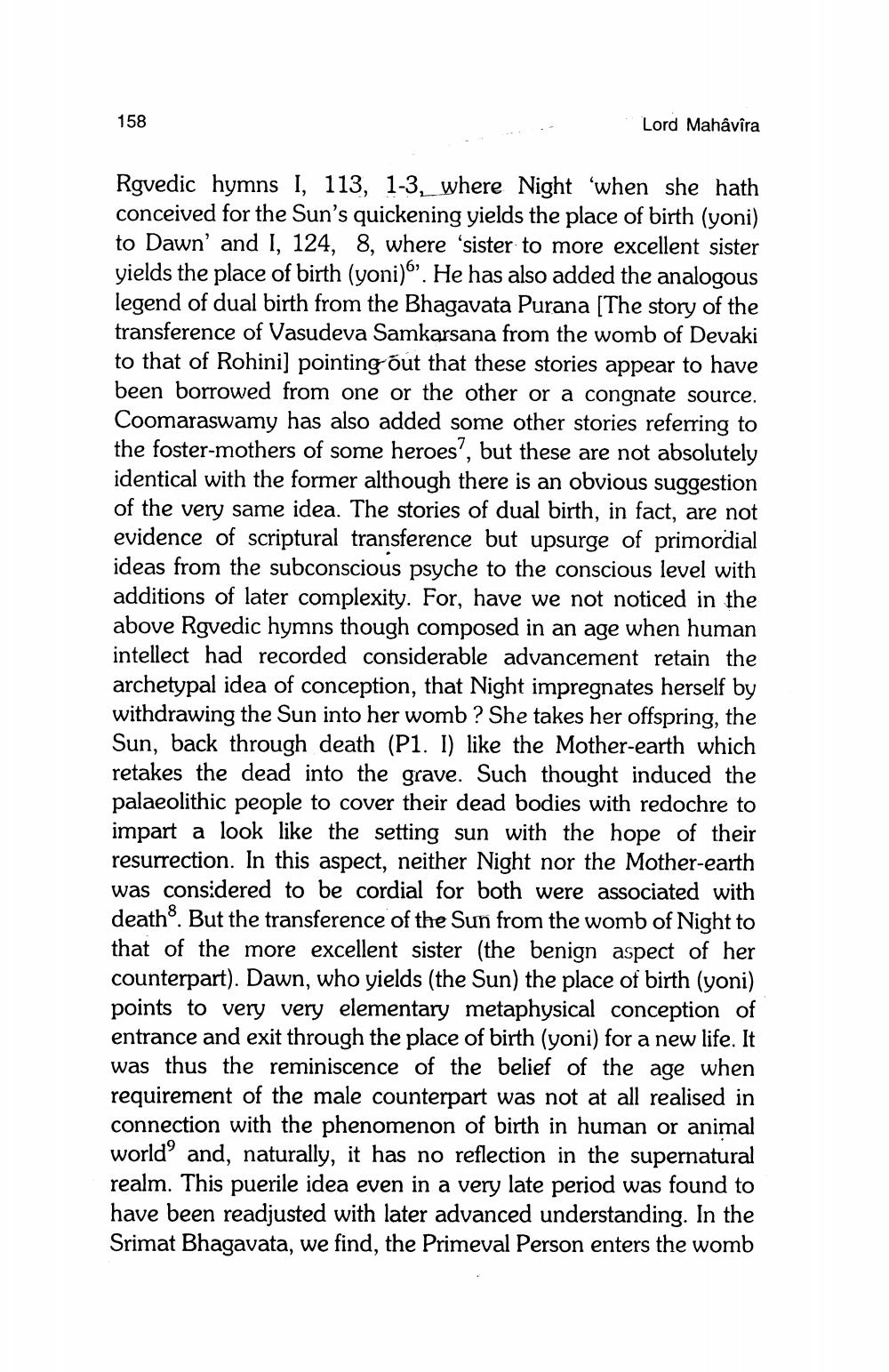________________
158
Lord Mahavira
Rgvedic hymns I, 113, 1-3, where Night 'when she hath conceived for the Sun's quickening yields the place of birth (yoni) to Dawn' and I, 124, 8, where ‘sister to more excellent sister yields the place of birth (yoni)?. He has also added the analogous legend of dual birth from the Bhagavata Purana (The story of the transference of Vasudeva Samkarsana from the womb of Devaki to that of Rohini) pointing out that these stories appear to have been borrowed from one or the other or a congnate source. Coomaraswamy has also added some other stories referring to the foster-mothers of some heroes, but these are not absolutely identical with the former although there is an obvious suggestion of the very same idea. The stories of dual birth, in fact, are not evidence of scriptural transference but upsurge of primordial ideas from the subconscious psyche to the conscious level with additions of later complexity. For, have we not noticed in the above Rgvedic hymns though composed in an age when human intellect had recorded considerable advancement retain the archetypal idea of conception, that Night impregnates herself by withdrawing the Sun into her womb ? She takes her offspring, the Sun, back through death (P1. I) like the Mother-earth which retakes the dead into the grave. Such thought induced the palaeolithic people to cover their dead bodies with redochre to impart a look like the setting sun with the hope of their resurrection. In this aspect, neither Night nor the Mother-earth was considered to be cordial for both were associated with death. But the transference of the Sun from the womb of Night to that of the more excellent sister (the benign aspect of her counterpart). Dawn, who yields (the Sun) the place of birth (yoni) points to very very elementary metaphysical conception of entrance and exit through the place of birth (yoni) for a new life. It was thus the reminiscence of the belief of the age when requirement of the male counterpart was not at all realised in connection with the phenomenon of birth in human or animal world' and, naturally, it has no reflection in the supernatural realm. This puerile idea even in a very late period was found to have been readjusted with later advanced understanding. In the Srimat Bhagavata, we find, the Primeval Person enters the womb




